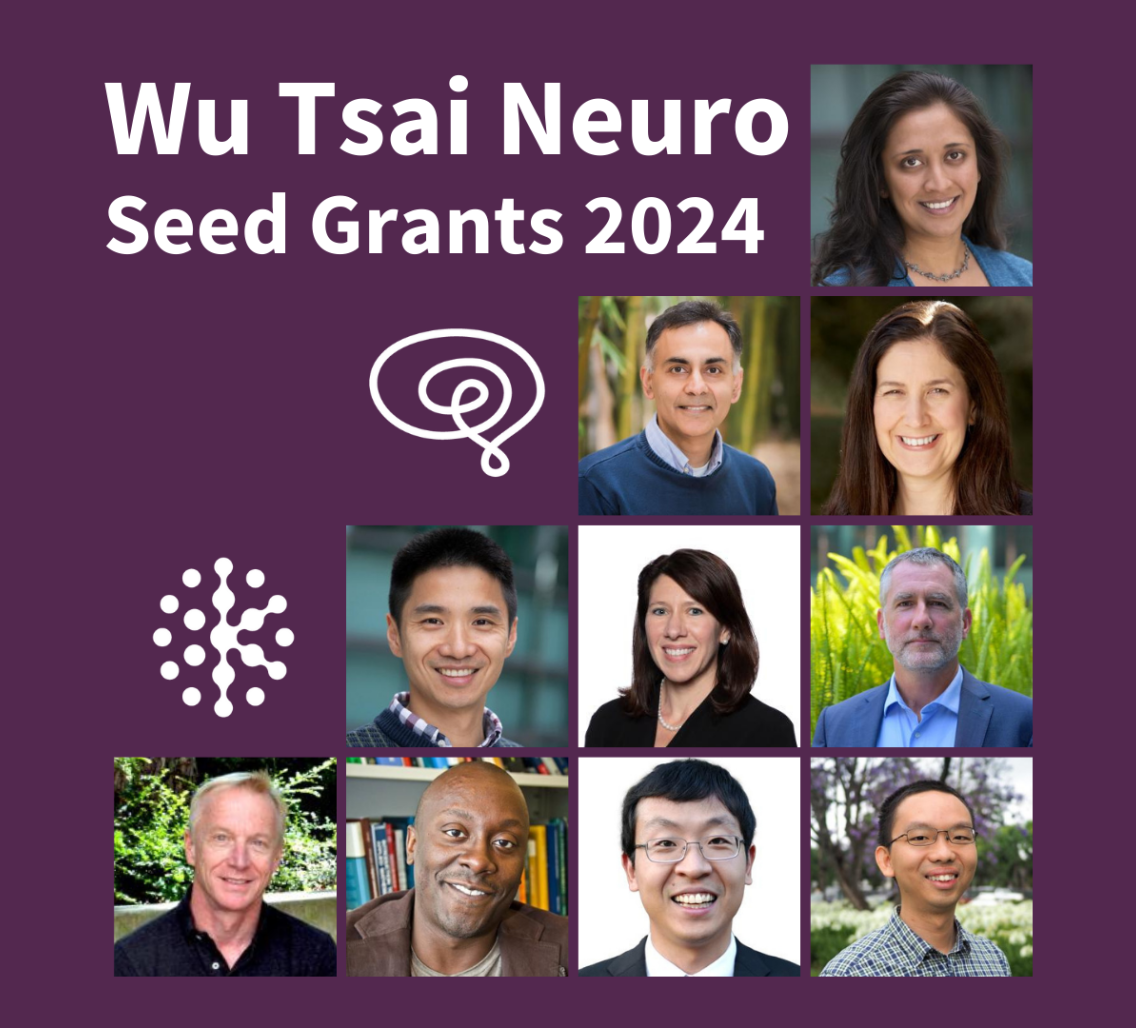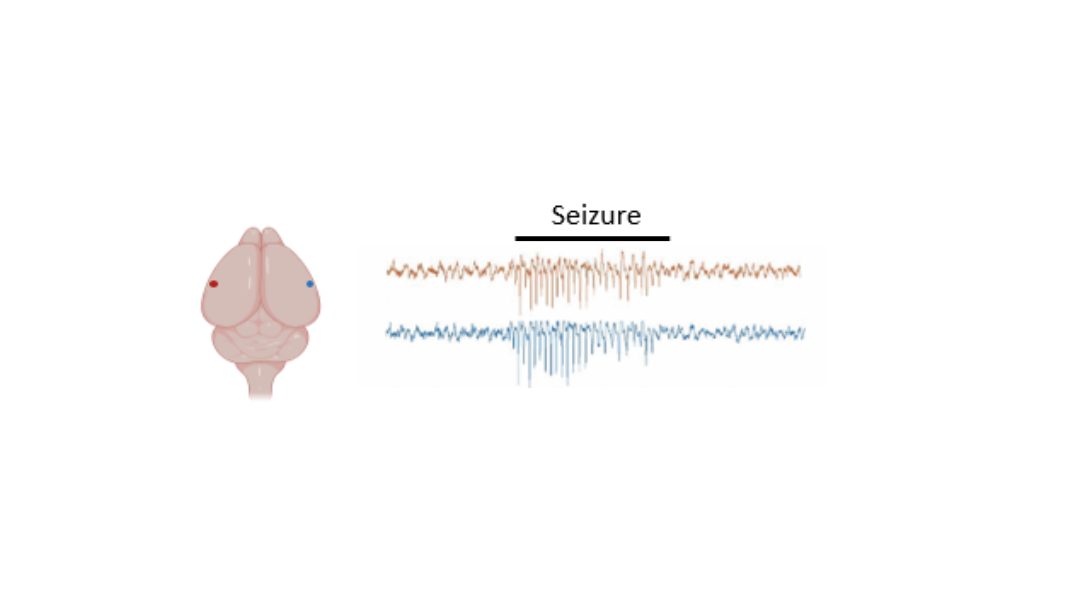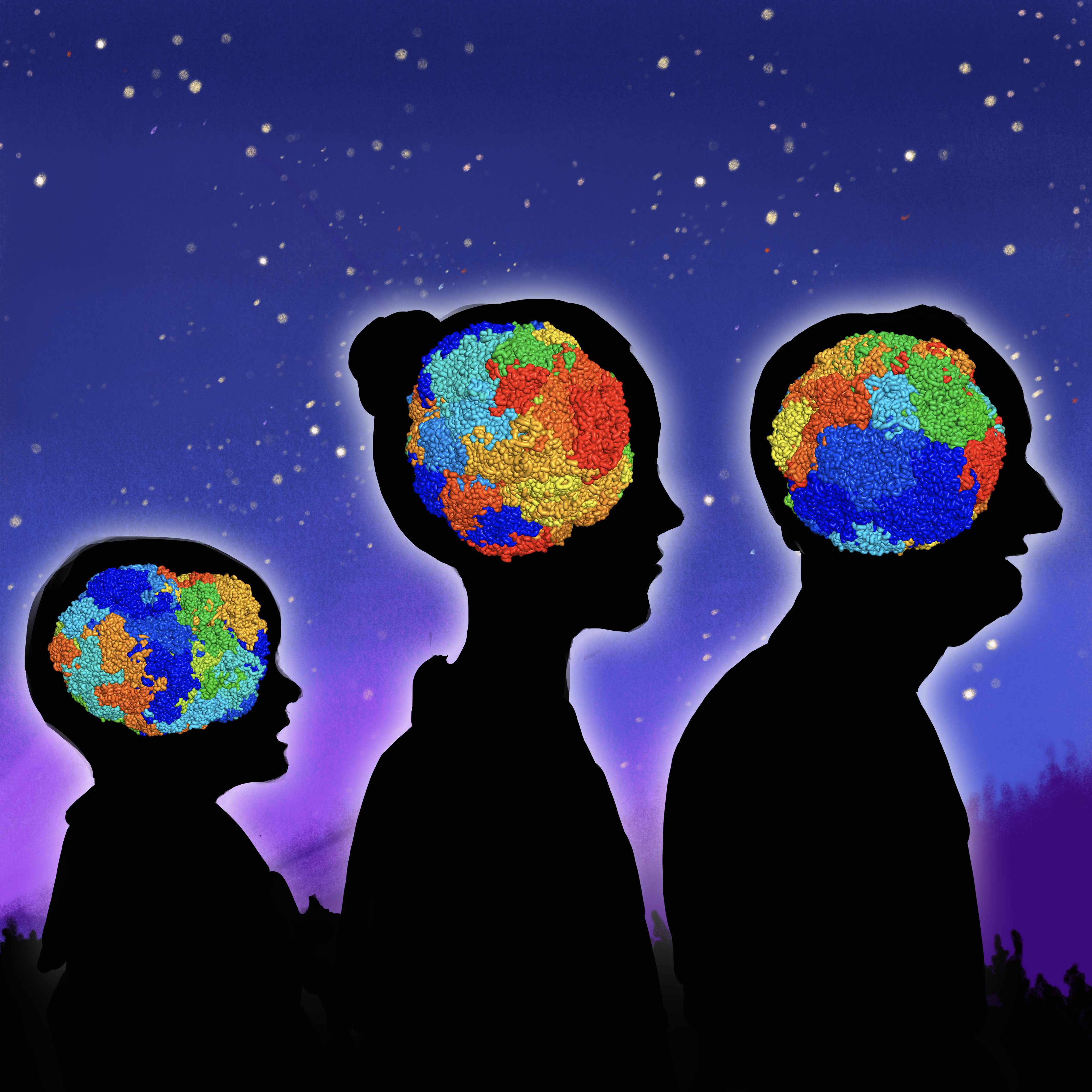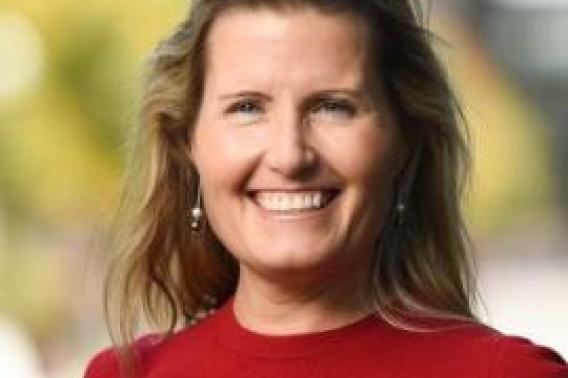Neurosciences seed grants fuel research in childhood epilepsy, eating disorders, Alzheimer's and more

The Wu Tsai Neurosciences Institute at Stanford University is proud to announce the recipients of its fifth round of Neurosciences Seed Grants.
Since 2015, these grants have supported interdisciplinary teams of researchers to pilot novel ideas that, while risky, have the potential for high-impact outcomes.
For example, one new project brings together the laboratories of epilepsy specialist Juliet Knowles and biological chemist Jonathan Long to resolve the mystery of the ketogenic diet. The team aims to discover why this extreme high-fat, low-carb diet reduces seizure risk in children with epilepsy by chemically isolating seizure-suppressing metabolic byproducts that are produced when the body is forced to burn fat rather than carbs for energy. If successful, the work could lead to new treatments that avoid side effects induced by the restrictive and sometimes dangerous diet.
“[This project could] be transformative for our basic understanding of how what we eat affects our brain health," said Long, a professor of pathology at Stanford Medicine. “In the future, this fundamental knowledge may be useful for guiding patient-tailored treatments for epilepsy.”
“Dr. Long's lab has done ground-breaking work on metabolic effectors of the ketogenic diet using tools such as mass spectrometry, while my lab is focused on uncovering mechanisms and treatments for pediatric epilepsy using genetic mouse models and human neurophysiological approaches like EEG,” added Knowles, an assistant professor of neurology and a physician-scientist who provides clinical care for children with epilepsy. “This collaborative work will combine our unique skill sets and expertise to tackle the ketogenic diet in epilepsy.”
The fifth round of Neurosciences Seed Grant projects span across seven disciplines, ranging from investigations of pediatric epilepsy to healthy brain aging. Funded collaborations aim to forge new links between gut and brain health in both Parkinson’s Disease and eating disorders, adapt protein analysis techniques to advance future Alzheimer’s Disease therapeutics, and progress the science of brain resilience.
This year, the Phil and Penny Knight Initiative for Brain Resilience at Wu Tsai Neuro is co-sponsoring two seed grant projects that focus on gaining a deeper understanding into the mechanisms behind neurodegeneration to promote healthy brain aging.
One of these projects aims to prototype new therapeutics for Alzheimer’s disease by harnessing the expertise of the Stanford Innovative Medicines Accelerator (IMA). Rooted in several years of conversations between neurologist Mike Greicius, an expert in the genetics of Alzheimer’s disease, and IMA director Chaitan Khosla, a professor of chemistry and founding director of Sarafan ChEM-H, this collaboration represents the importance of connecting with experts from different disciplines.
Indeed, the project is a perfect example of the productive intersections of medicinal chemistry and neuroscience envisioned by Khosla and Wu Tsai Neuro founding director Bill Newsome when they conceived of a shared ChEM-H / Neuroscience research complex nearly a decade ago. “Juxtaposition of faculty affiliated with these two interdisciplinary institutes creates new research opportunities for connecting molecules to brain health,” Khosla said.
Another project funded by the new round of seed grants aims to study the evolution of gene expression in individual cells across the lifespan of living animals, through a unique combination of expertise in genomics, in vitro tissue engineering, and in vivo aging studies. “If successful, [this project] would allow us to repetitively assess what happens inside neurons in living animals without any invasive procedure,” said Xiaojing Gao, an assistant professor of chemical engineering and faculty fellow at Sarafan CheM-H, who will collaborate on the project with Longzhi Tan, an assistant professor in the Department of Neurobiology.
“This is a high-risk high-reward project that neither of our labs would do on our own and probably too ambitious for more conventional mechanisms,” Gao added. “So we are grateful for the Wu Tsai Neurosciences Institute’s support.”
Funded Grants
Dissecting mechanisms of gut-brain communication in Parkinson’s Disease*
Lead Investigators
Ami Bhatt
Associate Professor, Medicine - Hematology, Genetics Department
Kathleen Poston
Professor, University Medical Line, Neurology; Pathology
* Co-sponsored by the Knight Initiative for Brain Resilience
Life-long, minimally invasive, and multiplex transcriptional profiling of the cerebellum
Lead Investigators
Xiaojing Gao
Assistant Professor, Chemical Engineering
Longzhi Tan
Assistant Professor, Neurobiology
Novel ketone-derived anticonvulsant agents for the treatment of childhood refractory epilepsy
Lead Investigators
Juliet Knowles
Assistant Professor, University Medical Line - Neurology, Pediatrics
Jonathan Long
Assistant Professor, Neurology and Neurological Sciences
Structural and mechanistic analysis of the protein-protein interface between ABCA1 and ApoE as a potential therapeutic target for Alzheimer’s Disease*
Lead Investigators
Chaitan Khosla
Professor, Chemistry and Chemical Engineering; Director, Stanford Innovative Medicines Accelerator
Michael Greicius
Professor, Neurology and Neurological Sciences
* Co-sponsored by the Knight Initiative for Brain Resilience
Use of gut-brain electrophysiology to study interoception in eating disorders
Lead Investigators
Todd Coleman
Associate Professor, Bioengineering
James Lock
Professor, Psychiatry and Behavioral Sciences - Child and Adolescent





